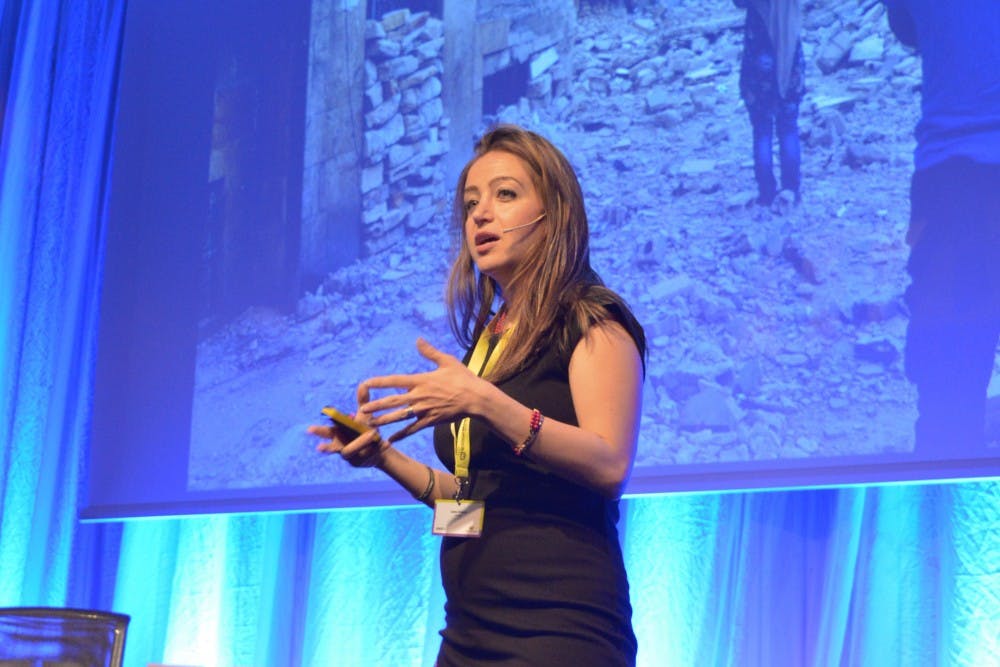
Syrian journalist Zaina Erhaim, this year’s “Writer at Risk," spoke at several Penn events this week. Erhaim discussed the challenges she faced in reporting amid the violence of the Syrian Civil War and the oppression she faced as a woman in areas controlled by extremist groups.
At the Annenberg School for Communication, Erhaim spoke about the oppressiveness of the Assad regime and her education as a rising journalist under a system that was more interested in propaganda than truth. She said that as she started to learn about the political prisoners held and human rights violations committed by the government, it became increasingly difficult for her to continue working in the mainstream Syrian press.
“It’s pretty difficult to see the truth and not be able to say anything about it,” Erhaim said.
She also said objectivity is different for journalists in conflict zones.
“Being objective is something I’m always asked about. As I said yesterday, I can’t and I won’t be objective when I’m speaking about war criminals, when I’m speaking about human rights violations,” Erhaim said. “I don’t think standing against torture is an opinion, I think it’s a basic right. Standing with rape victims or those who are being systematically abused is not an opinion.”
“It’s always a delight to welcome a media practitioner who is also trained academically in our field,” said Annenberg Professor Barbie Zelizer, who is also the director of the Center for Media at Risk. “She’s a model of an individual who richly applies her knowledge and her skills where they can have the most impact.”
Erhaim also spoke on Tuesday at the Perry World House as part of the panel “Risk and Reward: Local Journalists Covering the Front Lines of War in Syria and Yemen.”
Alongside Saudi Arabian journalist and filmmaker Safa Al Ahmad, she talked about the unique difficulties of reporting from a war zone.
During the event, the two journalists provided a contrast between their respective situations. Erhaim said her experience as a journalist first began under the repressive Assad regime in Syria. She then covered areas of the country torn apart by the civil war. However, Al Ahmad has documented the stories of Saudis and covered the ongoing humanitarian crisis and war in Yemen.
Erhaim was originally intended to be the inaugural “Writer at Risk” in December 2018, until her travel plans were derailed. The travel ban instituted by President Donald Trump's administration restricted visas for people from certain countries, most of which are predominantly Muslim and located in the Middle East, which initially prevented her from coming to Penn. An exception given by the State Department in January made the current trip possible.
The “Writer at Risk” program is an annual, joint venture between Perry World House and Kelly Writers House. The weeklong event features discussions with the journalists about their experiences and expertise.
“The purpose of ... our “Writers at Risk” program, and the way we conceived of it initially, was really to provide a platform, an audience, and an academic resource to writers who are at the front lines of protecting free speech and the independence of the media,” said Deputy Director of PWH LaShawn Jefferson. “Zaina is doing just that.”
Erhaim will continue to attend events around Penn until Friday. Then she will return to London, where she lives in asylum with her husband and child.
The Daily Pennsylvanian is an independent, student-run newspaper. Please consider making a donation to support the coverage that shapes the University. Your generosity ensures a future of strong journalism at Penn.
Donate




